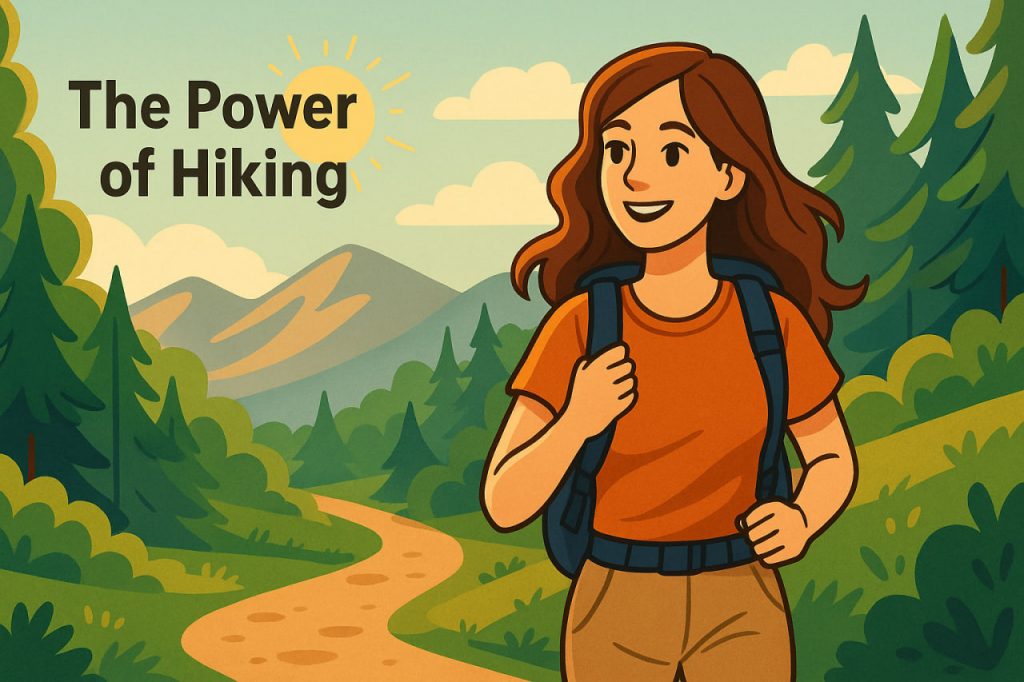Hiking is one of the most rewarding and accessible ways to connect with nature while improving both physical and mental health. Beyond the stunning landscapes and the fresh air, each step along a forest trail, mountain path, or coastal route offers powerful benefits for the body and mind. In a world dominated by screens and fast-paced routines, hiking serves as a natural remedy—reducing stress, strengthening the body, and nurturing the soul.
Physical Health Benefits of Hiking
Hiking is a full-body workout that improves cardiovascular endurance, strengthens muscles, and supports joint health. It combines aerobic activity with strength training, engaging the legs, core, and even upper body when using trekking poles. Regular hiking lowers the risk of heart disease, reduces blood pressure, and helps maintain a healthy weight. The varied terrain challenges balance and coordination, improving posture and bone density. Sports medicine specialist Dr. Richard Coleman explains, “Unlike gym exercises, hiking provides dynamic resistance—your muscles adapt to every step, slope, and surface, resulting in balanced, natural strength.”
Mental and Emotional Benefits
Nature has a unique ability to calm the human mind. Studies show that spending time outdoors lowers cortisol levels—the hormone associated with stress—and increases serotonin, which enhances mood and focus. Hiking allows people to disconnect from daily stressors and immerse themselves in the rhythms of nature. Walking through forests or along rivers provides a meditative experience that promotes mindfulness. Psychologist Dr. Helen Strauss notes, “Hiking is an active form of meditation. The body moves while the mind resets—it’s therapy without walls.” Many people report reduced anxiety, depression, and fatigue after regular exposure to natural environments.
The Power of Fresh Air and Sunlight
Hiking outdoors exposes the body to fresh air, which improves lung function and oxygen intake. It also allows the skin to absorb vitamin D from sunlight, essential for strong bones and immune health. Breathing cleaner air, especially in forested or mountainous areas, detoxifies the respiratory system and boosts energy levels. Fresh air also enhances blood circulation and supports better sleep. Combined with sunlight, these factors make hiking a natural booster for both immunity and mood—something no indoor activity can fully replicate.
Social and Community Aspects
Hiking can be both a solitary journey and a shared adventure. Group hikes encourage social connection, teamwork, and empathy, fostering friendships and community engagement. For families, hiking provides an opportunity to spend quality time together away from digital distractions. Shared challenges—like climbing steep trails or reaching a summit—build trust and resilience. In this sense, hiking not only strengthens the body but also the bonds between people, making it an activity that supports both personal and social well-being.
Cognitive and Creative Benefits
Spending time in nature stimulates creativity and cognitive performance. Walking in natural settings has been shown to improve memory, problem-solving skills, and focus. The brain functions more efficiently when free from the overstimulation of city life. Many writers, artists, and thinkers throughout history have turned to hiking as a source of inspiration. Neurologist Dr. Sofia Lambert explains, “When we hike, our brains enter a relaxed but alert state. This promotes creative thinking, decision-making, and emotional regulation.” Even short walks in green spaces can lead to measurable improvements in mental clarity and productivity.
Environmental and Spiritual Connection
Beyond physical and mental health, hiking deepens our connection to the environment. Immersing oneself in nature fosters appreciation for ecosystems and wildlife, often leading to more sustainable lifestyle choices. Many hikers describe a sense of spiritual renewal—a feeling of peace, perspective, and gratitude. The rhythmic act of walking becomes symbolic of life’s journey, reminding people of simplicity and balance. This harmony between human and nature is what makes hiking not just exercise, but a holistic form of healing.
Interesting Facts
- A brisk 1-hour hike can burn between 400–600 calories, depending on terrain.
- Hiking at high altitudes strengthens the heart and lungs due to lower oxygen levels.
- Forest air contains phytoncides, natural compounds from plants that boost the immune system.
- Hiking regularly can reduce the risk of depression by up to 30%, according to recent studies.
- Walking in nature improves creativity by as much as 50% compared to walking in urban settings.
Glossary
- Cardiovascular endurance — The ability of the heart and lungs to sustain physical activity.
- Cortisol — A hormone released in response to stress.
- Serotonin — A neurotransmitter that regulates mood and emotional well-being.
- Phytoncides — Antimicrobial organic compounds emitted by plants and trees.
- Mindfulness — A mental state of awareness and presence in the current moment.


